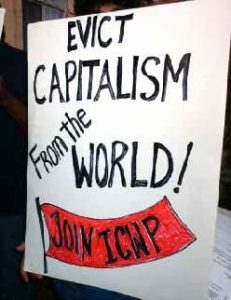
US, November 19—Tent cities are springing up in Chico, Northern California. They are housing refugees from the massive wildfire that destroyed the town of Paradise leaving 70 plus dead and 1,000 missing.
Tent cities have been springing up further south in Oakland, CA, for over a year now. They are housing refugees from the ravages of profit -gouging real estate developers. Like their compatriots in Chico, the tent families have no defense against the toxic smoke-filled air drifting in from the fires. Breathing it, according to experts, is the equivalent of smoking from 14 to 20 cigarettes a day.
Tent cities are springing up in Tijuana, Mexico, next to San Diego, CA. They are housing refugees from the violence of imperialist exploitation in Central America.
The tents mainly house white families in Chico, black families in Oakland, and Central American families in Tijuana. Stretching the length and breadth of California they signal the many faces of the general crisis of capitalism.
Presently, in the world there are 400 ‘natural’ disasters a year affecting some 200 million people. This, according to a UN report, is double the number reported 20 years ago. With the exception of earthquakes, the intensity of the others – floods, wildfires, droughts, hurricanes and so on – is caused by climate change. And what is climate change? Nothing but unchecked need for private profit, or capitalism in action.
As the general crisis deepens, however, so does the response of the masses. The tent cities go up and food arrives. It’s not asked for, it’s donated. Here and there a restaurant cook or taco truck arrives and meals are prepared. Clothes are donated. A group of teachers set up classes to help restore a sense of normalcy among the young kids.
There is no market, no exchange, no money. The masses meet the needs of the masses as best they can. Overnight the basis of a share-and-share alike communist society pushes aside the useless model of free-market capitalism. “From the masses, to the masses” is the unspoken operating slogan. Meeting the need of strangers, not exploiting them for profit, is the over-riding principle.
It’s a spontaneous expression of communism, not a political one. It doesn’t attack capitalism. As such, it has its limits and is uneven. The tent cities in Oakland, for example, get less support. Those in Tijuana are threatened by fascist forces. Racism is still a major weapon of capitalism. While all this reminds us that it will take a revolution to win a communist society, the readiness of the masses to abandon “the market,” profit and private property and organize directly to meet the needs of people speaks volumes to the power of our communist organizing principles.

